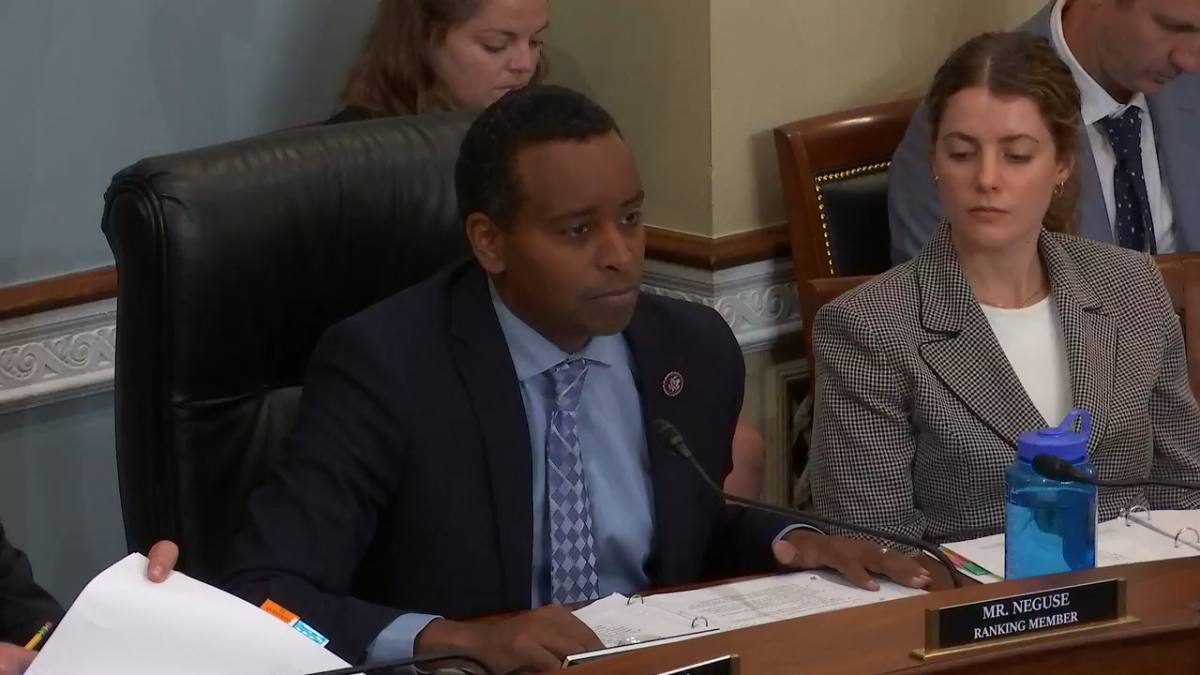Rep. Neguse and Colleagues Secure Agreement from USFS to Provide Protective Masks for Wildland Firefighters After Decades-Long Ban
Image

September 10, 2025
Pictured Above: Rep. Neguse, Ranking Member of the House Subcommittee on Federal Lands, questions Chief Schultz during today’s hearing.
Washington, D.C. — During yesterday’s hearing in the House Subcommittee on Federal Lands titled “The State of Our Nation’s Federal Forests,” in response to questioning from Ranking Member Joe Neguse of Colorado, Chief of the Forest Service Tom Schultz confirmed that, going forward, wildland firefighters will be provided N95 masks. This kind of protective equipment has not previously been approved for use, despite an increasing number of firefighters getting sick from smoke exposure while in the line of duty.
Chief Schultz’s commitment and the U.S. Forest Service (USFS)’s new guidance followed sustained pressure from Rep. Neguse and his colleagues, who have repeatedly urged the agency to address unsafe working conditions for federal wildland firefighters. In several letters sent before today’s hearing, the lawmakers pressed for answers about the protective equipment provided to firefighters. Public reporting has documented that, for decades, the USFS failed to provide protections for its workforce—sending them into heavy smoke without masks or other basic protections.
Find the exchange between Rep. Neguse and Chief Schultz confirming wildland firefighters' access to N95 masks HERE. Below is a transcription:
NEGUSE: In a recent article that I'm sure you're familiar with in the New York Times. And I guess, so the question I have for you is: Has the agency considered, in light of that reporting, and again, I know you're, you know, new to the agency relatively, but has the agency considered making PPE [Personal Protective Equipment] available to wildland firefighters? And I'm not talking about a mandate, but just in terms of having availability in the same way that Cal Fire has done, other states are now considering, and of course, many other Western countries.
CHIEF SCHULTZ: So, Mr. Chairman, Mr. Neguse, first of all, in the article, Forest Service employees were interviewed for that and their input was not included in the article. So, I would argue that that article was fairly one-sided, just to clear the record on that. In terms of what we do provide firefighters, N95 masks are available, should a firefighter choose to wear that. They're provided on fires. What we do not provide are respirators, and that's something that they're…
NEGUSE: Can I ask about the mask on that front? And I will…just on the N95 mask. So, does the wildland firefighter have to ask for that, or are they, are they now, it's the policy of the Forest Service that they're made aware that they have the ability to access those masks if they choose?
CHIEF SCHULTZ: Mr. Chairman, Mr Neguse, yes, they're aware that they are available on fires. As part of when we deploy to a fire, the logistics team, they do order that that is available to firefighters. That it's N95 masks—not respirators—N95 masks.
NEGUSE: And I would say on that point, I thank the Chairman for his indulgence. I think it would be important for the Forest Service, I mean, you've done this now during the course of this hearing, but perhaps taking another step to pronounce that very publicly, because that was not, that was, that's not the understanding I think, based off of what I've, we've all collectively read. But I hear you, and so I'd look forward. We sent a letter to you, along with many other members, on this subject that just asked a series of questions to try to get some clarity for our wildland firefighters, and so I would hope that we could continue to work with you on that.
CHIEF SCHULTZ: And Mr Chairman, Mr Neguse we, we got your letter yesterday. So we appreciate that. And we will work toward answering those. But we do. We take it very seriously. Firefighter health. It was mentioned earlier, too. It's not just physical health in terms of respiration, but also psychological health. So that's something we are very serious about, that we do have suicides occasionally. So, firefighters' safety is of critical importance to the agency, and we're working with our firefighters to make sure that they are protected and have appropriate PPE to keep them safe.
NEGUSE: Thank you.
###
